Google Stadia vs. Project xCloud: Which Cloud Gaming Service Will Win?
Here’s how Google Stadia and Microsoft’s Project xCloud stack up so far.
Forget consoles -- the next big platform wars will be fought in the cloud. With Google’s Stadia and Microsoft’s Project xCloud, two of tech’s biggest giants are making a big push into the cloud-gaming arena, in which you can play big-budget games on any device no matter where you are.
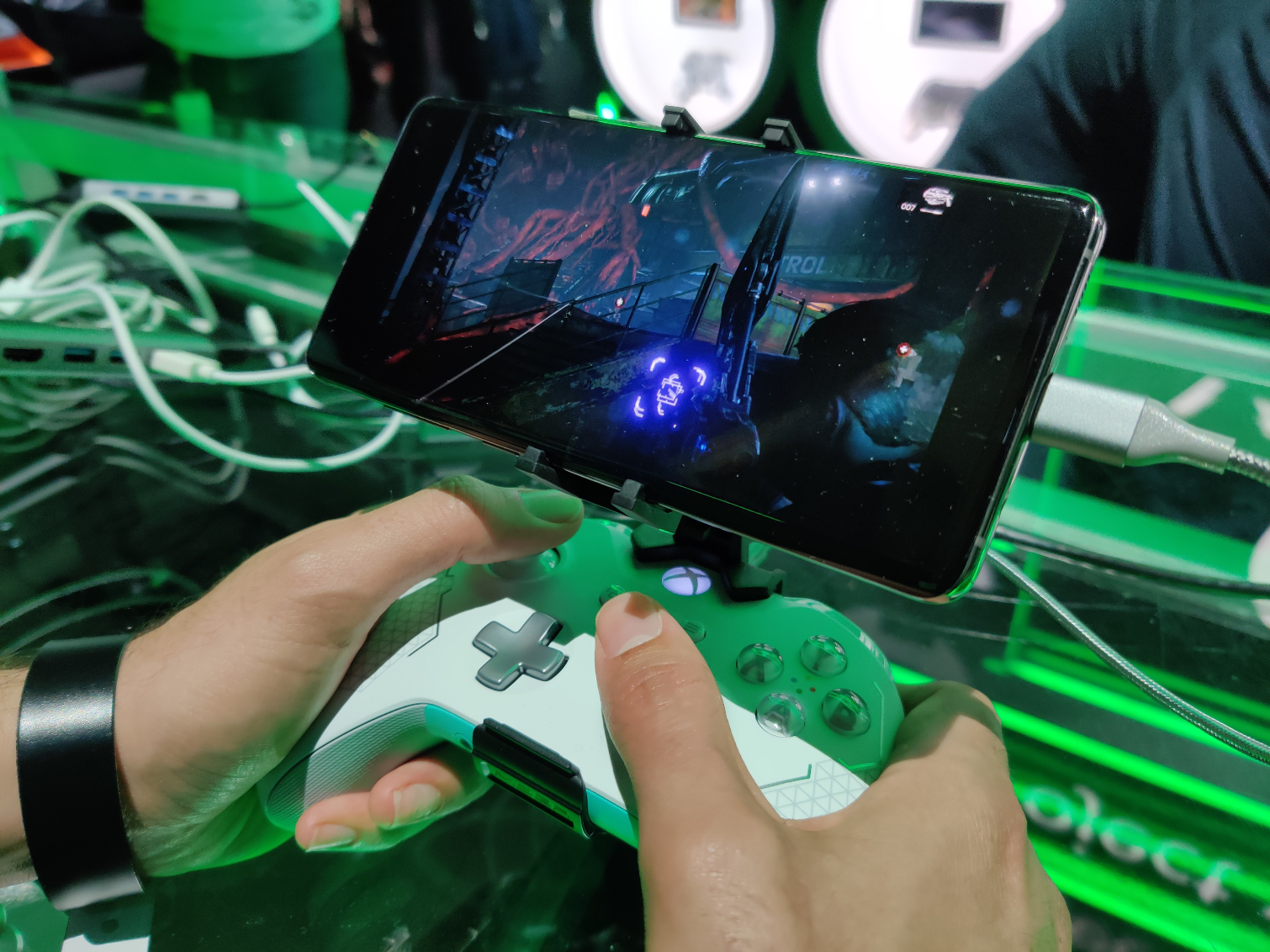
Google Stadia and Project xCloud each look to offer a unique approach to cloud gaming when they launch in late 2019. While many key details of each service are still a mystery, here’s how Stadia and xCloud stack up so far.
Platforms & Accessories
Google Stadia will eventually work on any device that can run a Chrome browser, including desktops, laptops, smartphones and tablets. At launch, the service will be available on PCs, Chromecast Ultra devices, and Pixel 3 and Pixel 3a smartphones, with more platforms to roll out in the future. The service will support most modern USB controllers, though you can also purchase Google’s own $69 Stadia Controller, which syncs directly to Wi-Fi for smoother latency.
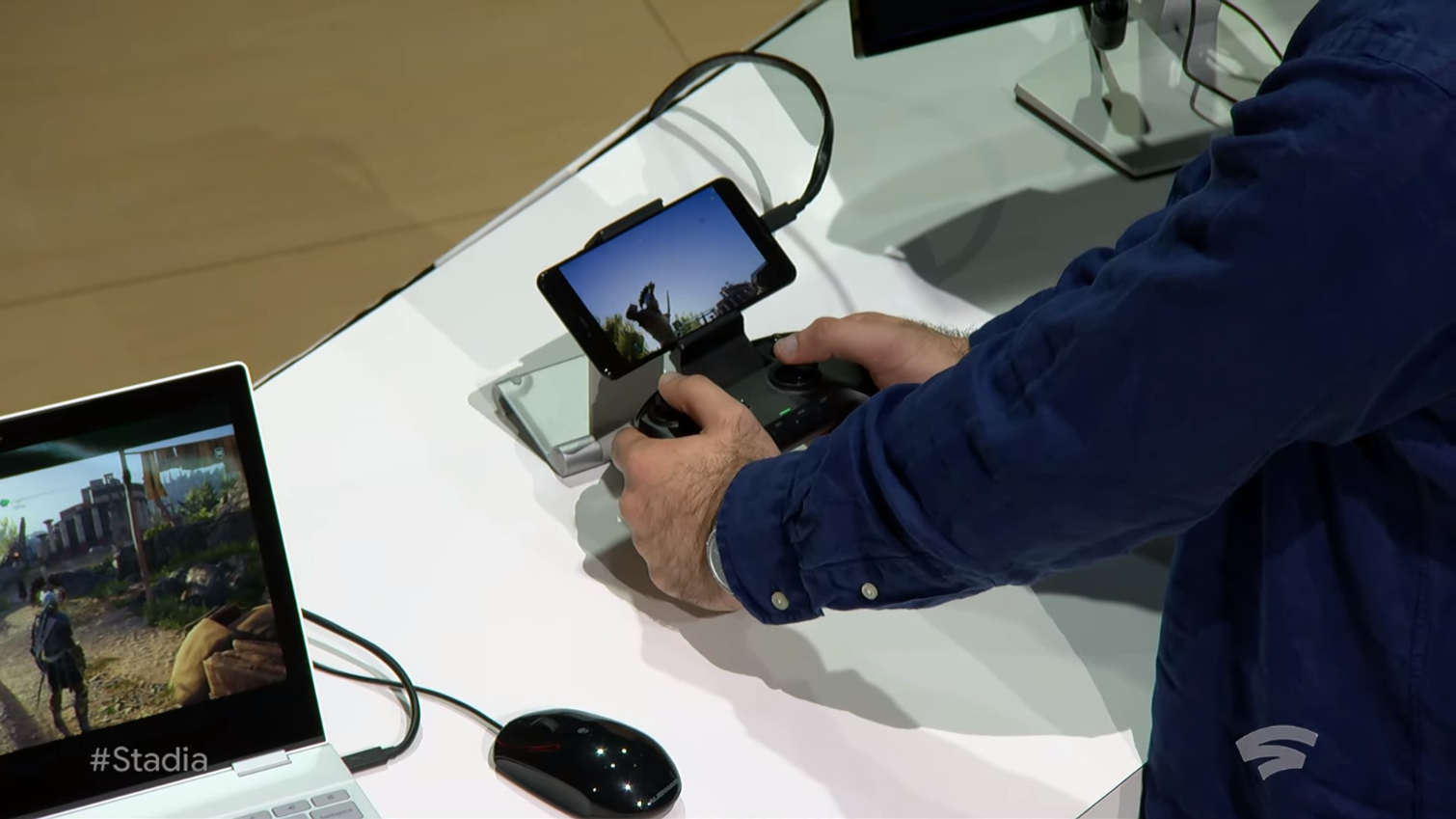
Microsoft hasn’t detailed which devices xCloud will support, beyond vaguely stating “smartphones and tablets.” When we demoed the service at E3 2019, it was running on an Android phone hooked up to an Xbox One controller.
Price
At launch, Google Stadia will be available as part of a $10-per-month Stadia Pro subscription, which allows you to stream Stadia at 4K resolution with HDR support while gaining access to a library of select titles, including Destiny 2. However, newer titles will require a separate purchase.
Get instant access to breaking news, the hottest reviews, great deals and helpful tips.
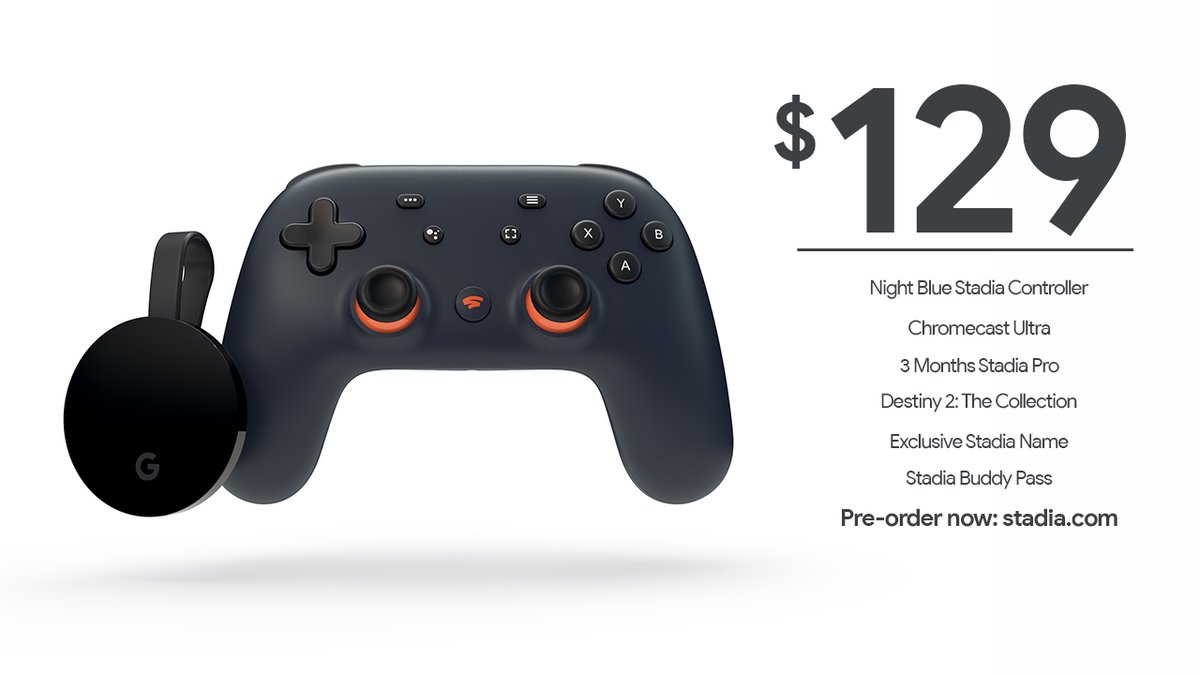
You can also pick up the $129 Stadia Founder’s Edition, which includes a limited-edition Night Blue Stadia Controller, a Google Chromecast Ultra for playing on your TV, 3 months of Stadia Pro and a 3-month Stadia Pro buddy pass that you can give to a friend. In 2020, Google will launch Stadia Base, which allows you to skip the subscription fee and simply buy the games you want to play (though you’ll be limited to 1080p streaming and Stereo sound).
Project xCloud, on the other hand, seems like it will be free -- as long as you own an Xbox One. Xbox owners can use their console as an xCloud server, streaming any Xbox One game they own to their smartphone or tablet (much like they already can using Xbox One’s in-home Windows 10 streaming feature).
Microsoft also noted that there will be an option to stream xCloud games from Microsoft’s data centers without the need for a console. The company hasn’t divulged its pricing plans for this option, but it’s easy to imagine that it’ll come with a subscription fee.
Games
Google Stadia will launch with more than 30 games, including popular AAA titles like Assassin’s Creed Odyssey, Destiny 2, Doom: Eternal and Final Fantasy XV as well as indies such as Gylt and Get Packed.
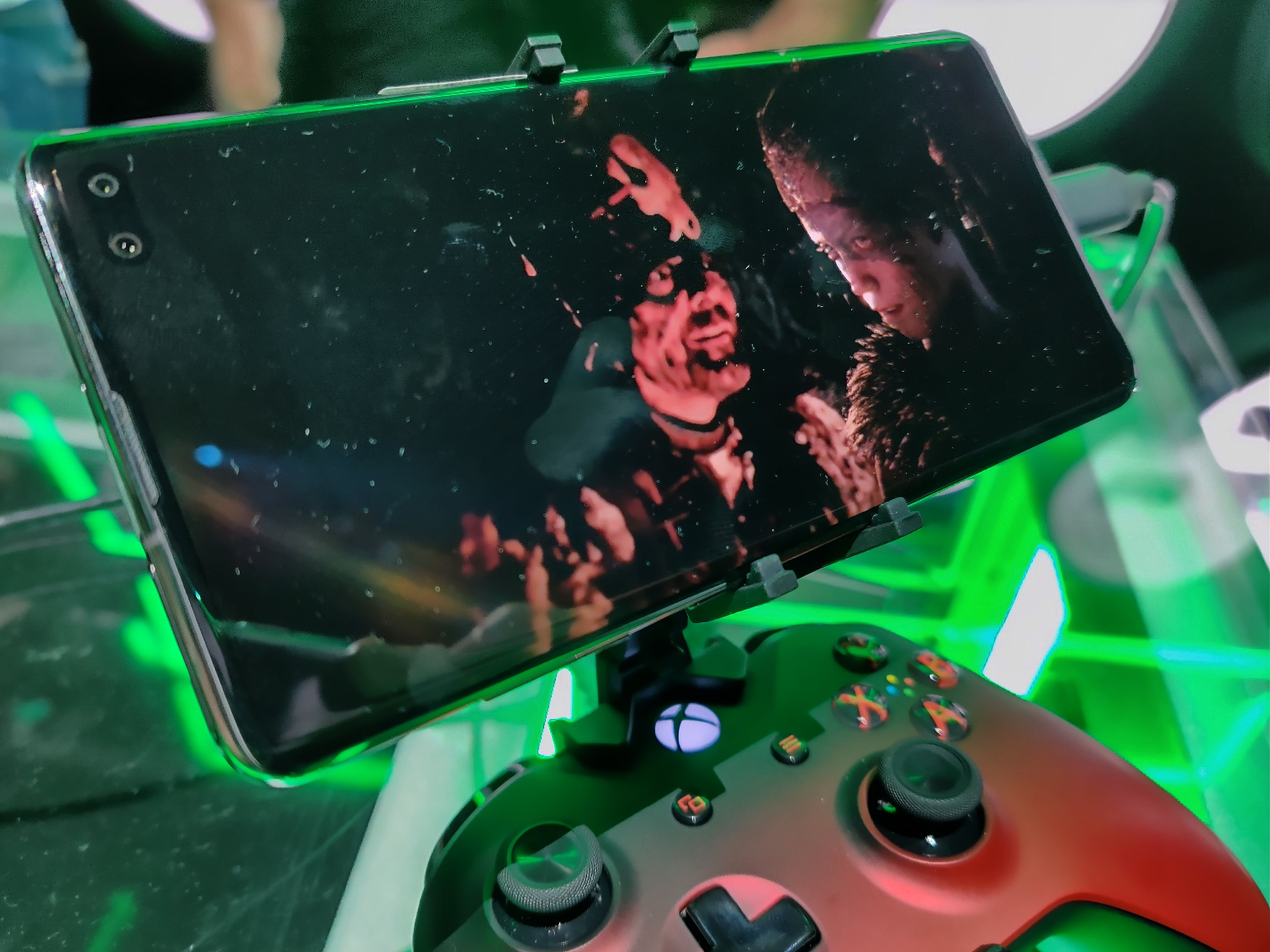
Theoretically, xCloud will support any game in your Xbox One or Xbox Game Pass library. Microsoft hasn’t detailed which games might come to the non-console version of the service, though we did try out titles such as Halo 5, Gears of War 4 and Hellblade: Senua’s Sacrifice running from one of the company’s data centers.
Specs
Stadia’s data centers are powered by a custom AMD processor, which allows for gameplay at up to 4K resolution at 60 frames per second with goodies like HDR and 5.1 surround-sound support.
We’re not sure what will power xCloud’s data centers, but the console streaming version of the service will be powered by your existing Xbox One, Xbox One S or Xbox One X.
Performance: which platform plays best?
We’ve had a chance to test both Stadia and xCloud at various events, and both services do an admirable job delivering big AAA games with minimal latency. Titles like Assassin’s Creed Odyssey and Doom played faithfully on Stadia, as did Xbox games like Halo 5 and Gears of War 4 on xCloud. We noticed our fair share of lag on both platforms -- particularly when doing things like moving in-game cameras around.
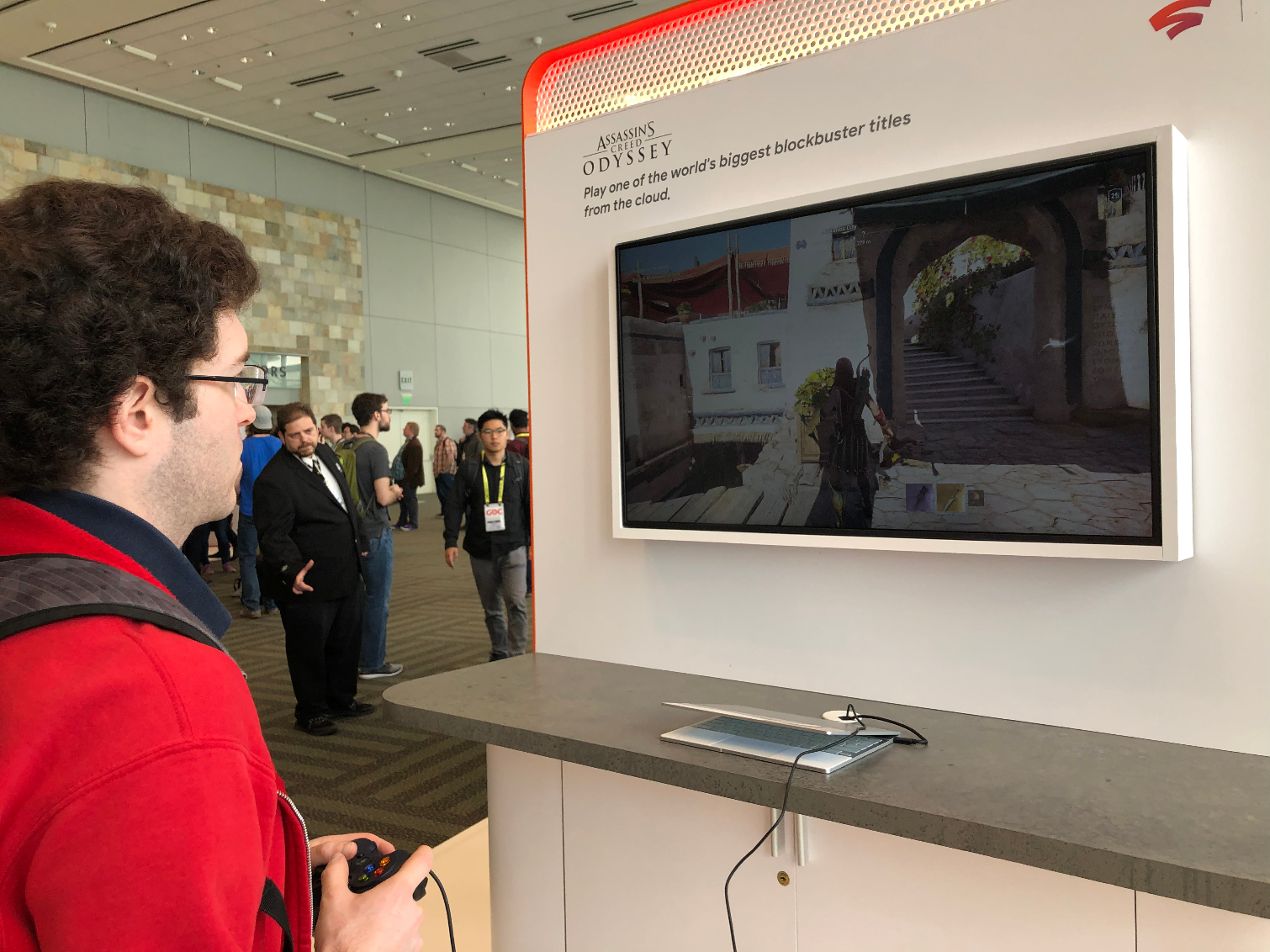
In our most recent hands-on with Stadia at E3 2019, we experienced the highs and lows of Google's platform. When everything was working properly, the service ran the brutally fast action of Doom: Eternal incredibly smoothly, to the point where it was easy to forget that we were streaming a game from the cloud.
However, the Wi-Fi went out twice during our session, and while it was easy to pick up where we left off when things got fixed, it was a frustrating pause in the action that served as a reminder that your game is always at the mercy of your internet connection.
That hiccup aside, both services offered impressive fidelity and smoothness in our time with them. Of course, we’ll have to see how Stadia and xCloud hold up in home environments with varying internet speeds, and not custom-built show floor exhibitions.
Outlook: Which service will win?
Google Stadia could be a great introduction to AAA gaming for those looking to dip their toes in, providing access to a solid library of big titles that you don’t need any fancy hardware to play. The fact that you have to pay a monthly $10 subscription on top of purchasing individual titles doesn’t seem great, but it’s still cheaper than shelling out for a $300 console or $1,000 PC upfront.
Project xCloud, on the other hand, seems like a handy option for Xbox One owners to play the games they already own while they’re on the go, especially since that version of the service won’t cost a thing. However, we’re curious to see what Microsoft will charge for a version of xCloud that doesn’t require an Xbox to use.
Ultimately, Stadia and xCloud seem to be targeting different kinds of gamers, with Stadia hoping to capture the gaming-curious and xCloud giving you another way to play the Xbox One games you already own. Despite their different approaches, one thing is clear: cloud gaming doesn’t look like it’s going away anytime soon.
Be sure to follow our E3 2019 news hub all week long for the biggest reveals and impressions out of Los Angeles.
Mike Andronico is Senior Writer at CNNUnderscored. He was formerly Managing Editor at Tom's Guide, where he wrote extensively on gaming, as well as running the show on the news front. When not at work, you can usually catch him playing Street Fighter, devouring Twitch streams and trying to convince people that Hawkeye is the best Avenger.
 Club Benefits
Club Benefits






